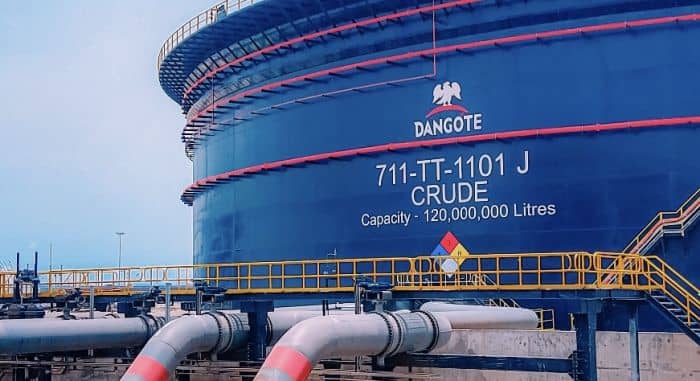Nigeria’s giant Dangote oil refinery could bring to an end a decades-long gasoline trade from Europe to Africa worth $17 billion a year, heaping pressure on European refineries already at risk of closure from heightened competition, analysts and traders said in a Reuters report.
The refinery started production in January and cost $20 billion to build. It can refine up to 650,000 barrels per day (bpd) and will be the largest in Africa and Europe when it reaches full capacity this or next year.
It has long been touted as the turning point for Nigeria’s quest for energy independence. Nigeria is Africa’s most populous nation and its top oil producer, yet it imports almost all its fuel due to lack of refining capacity.
About a third of Europe’s 1.33 million bpd average gasoline exports in 2023 went to West Africa, a bigger chunk than any other region, with the majority of those exports ending up in Nigeria, Kpler data shows.
“The loss of the West African market will be problematic for a small set of refineries that do not have the kit to upgrade their gasoline to European and U.S. specification,” consultancy FGE’s head of refined products Eugene Lindell said, referring to more stringent environmental standards for other markets.
As much as 300-400,000 bpd of refining capacity in Europe is at risk of closure because of rising global gasoline production, according to Kpler’s analyst Andon Pavlov.
A European refinery executive who declined to be identified said coastal refineries that are geared for exports will be more exposed while inland refineries are less vulnerable because they rely on local demand.
“The changes won’t happen overnight, but they could ultimately lead to closures of refineries and their conversion to storage terminals,” he added, referring to the challenging market environment.
Pavlov said the UK’s Grangemouth and Germany’s Wesseling refineries could close ahead of schedule as a result of looming gasoline oversupply later this year and consequent pressure on refining margins.
Petroineos CEO Franck Dema flagged the energy transition which is causing demand for fossil fuels to dwindle as one of the reasons behind his company’s decision to shut down Grangemouth next year.
Shell said its decision to shut down Wesseling next year was part of its drive to reduce carbon emissions.
The Dangote refinery, spearheaded by Africa’s wealthiest individual, Aliko Dangote, has been strategically designed to produce up to 53 million litres of gasoline per day, approximately 300,000 bpd.
Its emergence coincides with new environmental regulations in Northwest Europe, further complicating the future of European refineries.

